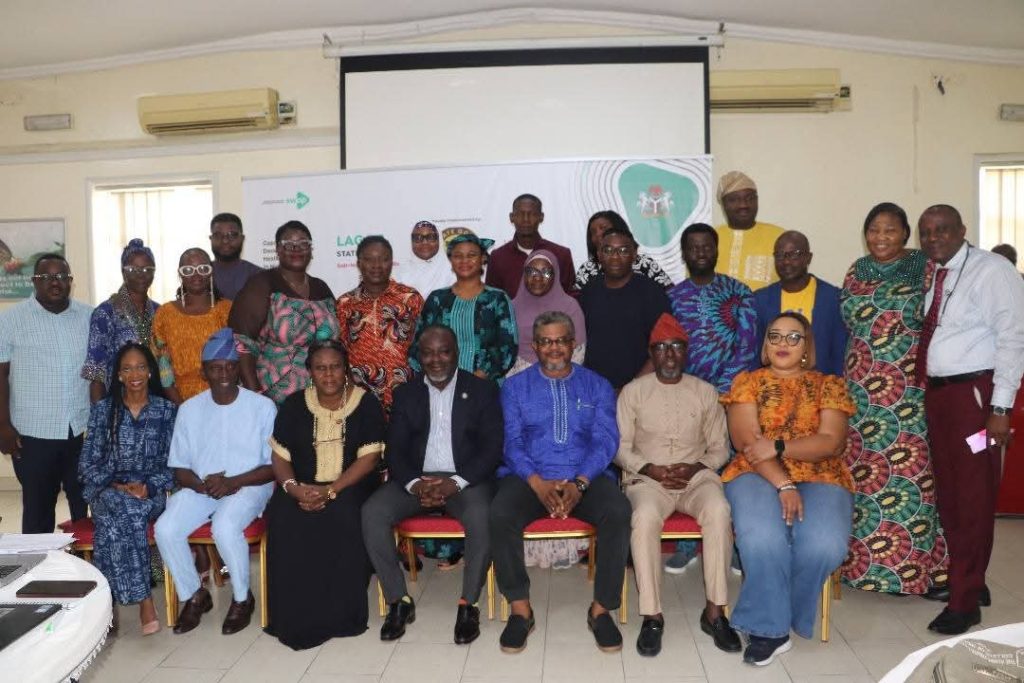The Lagos State Ministry of Health has concluded a four-day capacity-building workshop for health leaders and managers, with a call for action on sector reform and integration of new planning tools into health governance.
The event, part of the Nigeria Health Sector Renewal Investment Initiative (NHSRII), ended yesterday at Trident Suites in Ikeja.
Organised in collaboration with the Federal Ministry of Health and the SWAp Coordination Office, the sub-national workshop gathered top state officials, technical experts, and development partners to drive system-wide transformation.
READ ALSO: Lagos govt launches survey on lead poisoning in children to tackle metal hazards
Speaking at the closing ceremony, the Permanent Secretary of the Ministry, Olusegun Ogboye, stressed the need to translate lessons from the training into concrete improvements across planning, budgeting, and service delivery.
“This workshop wasn’t just theory—it gave us real tools for change,” he said.
“We explored systems thinking, data-driven planning, and bottleneck analysis. These must now guide how we design and deliver healthcare.”
Ogboye also highlighted the significance of the workshop’s timing, aligning with the state’s upcoming budget cycle.
He confirmed that Lagos would fully adopt the web-based Annual Operational Planning (AOP) tool in 2025, allowing health plans to be finalised before budget approvals are made.
“For the first time, planning will inform the budget—not chase it,” he added. “The AOP tool gives us a platform to craft actionable and fundable health plans.”
The Permanent Secretary directed the Department of Planning, Research, and Statistics to ensure the training content is cascaded across all health agencies in the state, urging departments to approach reform with a new mindset grounded in local realities and stakeholder engagement.
Director of Healthcare Planning, Research, and Statistics, Olajumoke Oyenuga, who coordinated the workshop, praised participants for their commitment, noting full attendance even during public holidays.
“We’re no longer speaking like isolated actors; we’re thinking in systems,” she said. “The transformation is visible.”
Oyenuga also acknowledged the contribution of master trainers and federal facilitators, including Oyeyemi Ogunjobi, Moji Kufo, Sangoleye, Nonso Egbosi, and Olabisi Dabiri, whose expertise helped bridge theory with practical realities.
Delivering a technical summary, SWAp Desk Officer for Lagos, Oyeyemi Ogunjobi, outlined the training journey: from deep dives into sector-wide approaches and the HOPE Project, to resource mapping and costing exercises using the AOP tool.
“Our planners now understand how to apply the ‘one plan, one budget, one report’ principle. This is critical to achieving health sector efficiency,” he said.
Federal Ministry of Health consultant Olabisi Dabiri described the Lagos cohort as “exceptional,” citing their engagement and measurable growth from the first day’s pre-tests to the final presentations.
“This group will return to their LGAs and MDAs better equipped to lead reform. That’s exactly the outcome we aim for under NHSRII,” Dabiri stated.
With the workshop concluded, the focus now shifts to implementation.
READ ALSO: Lagos govt partners with Diageo Nigeria to empower youth in hospitality, retail
The ministry of health plans to integrate the new strategies into its 2025 operational plans, while monitoring mechanisms will be deployed to track progress.
As Ogboye noted in closing, “The real impact of this training will be seen not in this room, but in how our health facilities and departments function going forward. Now is the time to act.”



